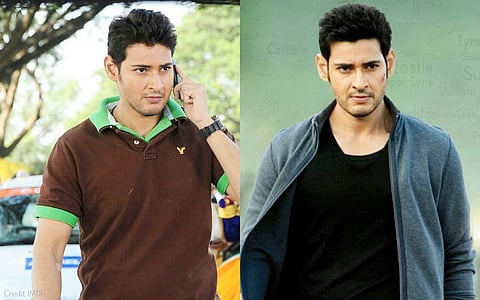
- Reviews
- Power List 2024
- Cannes 2024
- In-Depth Stories
- Web Stories
- News
- FC Lists
- Interviews
- Features
- FC SpecialsFC Specials

Thanks to his body of work in Telugu cinema, tremendous fan following and blockbusters such as Okkadu, Athadu, Pokiri, Dookudu, Srimanthudu, Bharat Ane Nenu and Sarileru Neekevvaru, Mahesh Babu is often called 'Prince' or 'Superstar'. Over his two decades in the industry, the actor has brought in a different kind of sensibility that is new to audiences.
On his 45th birthday, let's check out two of the most underrated films in his filmography.
Director: Trivikram Srinivas
Khaleja, which was announced after Mahesh Babu's three-year sabbatical, created a lot of buzz owing to his return to the big screen and also the big names attached to the project. The Trivikram-Mahesh Babu-Mani Sharma combination had already given us Athadu, which was both a commercial and critical success.
Khaleja ticks all the boxes to qualify as a commercial entertainer — comedy, song and dance, fight scenes… The underlying philosophy and central theme of the story can be summarised in the words that appear before the opening credits — "Devo Manushya Rupena". The film makes its protagonist literally a 'God'. When Pali, a remote village in Andhra Pradesh, is struck by some unknown disease that kills several villagers, a tantrik sends his disciple Siddha (Shafi) to search for their 'God' who can save them. Siddha finds their God, our protagonist Raju, short for Alluri Sitarama Raju (this also happens to be one of the iconic roles portrayed by the actor's father Krishna) after a series of events, as prophesied by the tantrik.
Khaleja is a genuine attempt at making an entertaining and commercial movie with a larger philosophical ideology. It is ultimately about how Raju understands his place in the scheme of things and saves the villagers. The characters are exquisitely detailed and the cinematography, especially in the interval and climactic stretches, is superb. The director balances the logic and the fantastical/supernatural events well. In one of the most beautiful scenes in the film, Raju has an epiphany that there's God in everyone who selflessly helps others. The director chooses to not make the protagonist believe in the prophecy completely, but makes him realise his place and puts him on the path he needs to take. Mahesh Babu as Raju found a new style of comedy that caught the audience by surprise. Even in the more serious and intense moments, his performance is nuanced. Mani Sharma's music is a great asset to the movie; the background score and the 'Sada Siva' track came in for high praise and fit beautifully into the screenplay.
Although the film has acquired cult status now, it did not do well at the box office. The audience probably expected a routine commercial film from Mahesh (the title of the film could've misled the audience to expect an action film) after his long absence. Now, fans and movie buffs feel the movie was ahead of its time and the audience was not ready to watch a film that dealt with a larger ideology.
Director: Sukumar
It is always difficult to box a commercial Telugu film into a genre. If 1:Nenokkadine had been made without the commercial angles, we could have called it a psychological action thriller. However, Sukumar and Mahesh Babu attempted a very different genre and a new narrative style that Telugu audiences weren't familiar with.
1: Nenokkadine is a story of rockstar Gautham (Mahesh Babu) who has Integration Disorder. Gautham hallucinates about killing three people who he believes killed his parents and surrenders to the cops. He is later made aware of his psychological disorder; he is devastated and starts second-guessing everything, as to whether it is real or imagined. When he finds out that one of the three killers is real, he starts searching for his past and the identity of his parents.
The screenplay uses Gautham's condition cleverly and keeps the audience guessing as to whether the events are real or a part of his imagination. The editing is fabulous, and keeps cutting back to the shots from Gautham's past that are all disoriented. The director unfolds the revelations in the story through micro-detailing. For instance, when Gautham kills one of the three killers in Belfast, we see a fleeting shot of birds flying away. Gautham, after he is aware of his condition, believes this is imagined. But when Naveen Polishetty's character says that Gautham indeed killed the man and the flashback is revealed, this shot makes sense. Anything that is a part of Gautham's imagination cannot be sensed by anyone else, but the shot of the birds flying away makes absolute sense because that incident was real. Mahesh Babu as Gautham is stunning — especially, his intense brooding look with a slight frown and his performance in the emotional climax. The cinematography is extraordinary, and the climactic stretch that keeps cutting back and forth from Gautham's past and present is visually striking. The music and background score by Devi Sri Prasad is among his best.
The main criticism of the film was that it was too complex for the general audiences to comprehend, and that the 'Is it real or imagined?' narrative adopted was confusing. But the film seems to have gained a cult following later, and is now highly regarded.